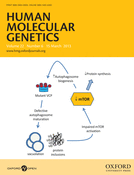 A researcher at Harvard Medical School and Massachusetts General Hospital is retracting a paper due to “inappropriate manipulation and fabrication of data” by the first author.
A researcher at Harvard Medical School and Massachusetts General Hospital is retracting a paper due to “inappropriate manipulation and fabrication of data” by the first author.
According to the retraction notice, published Aug. 22, corresponding author Marian DiFiglia is retracting the paper because the alleged misconduct by the first author, Antonio Valencia:
led to an incorrect conclusion in the paper that NADPH activity is elevated in Huntington’s disease (HD). Some original data were missing and efforts to replicate findings using the reported method or an alternative approach were unsuccessful. An institutional faculty panel supports the decision and the reasons for the retraction.
The notice added that the alleged data manipulation and fabrication affected bar graphs in two of the paper’s figures.
Terri Ogan, a spokesperson for Mass General, told Retraction Watch that Valencia no longer works at the institution, but declined to say whether there has been an investigation into the alleged misconduct:
we typically do not comment on these situations. Whenever questions or concerns are raised about the scientific integrity of studies conducted at MGH, we take them very seriously, and we follow the procedures required by federal regulations, where applicable, and institutional policy.
In a later message, Ogan told us, “it is not advisable to comment on this matter as it unfolds.”
The paper in question is “Elevated NADPH oxidase activity contributes to oxidative stress and cell death in Huntington’s disease,” published in Human Molecular Genetics in December 2012. The study has been cited 53 times, according to Clarivate Analytics’ Web of Science.
MGH has removed Valencia’s “Research Investigator Profile” webpage, but an archived copy exists. According to Valencia’s LinkedIn page, he is now employed at Biogen, a pharmaceutical company in the Boston area. We’ve asked Biogen whether Valencia works there, and will update with whatever we learn.
DiFiglia and Valencia reprised their respective roles as last and first author in another paper on the role of oxidative stress in Huntington’s disease, published in the Journal of Huntington’s Disease (JHD) in 2013: “Striatal Synaptosomes from Hdh140Q/140Q Knock-in Mice have Altered Protein Levels, Novel Sites of Methionine Oxidation, and Excess Glutamate Release after Stimulation.” JHD co-editor-in-chief Leslie Thompson, of the University of California, Irvine, told Retraction Watch that the journal doesn’t believe there are any problems with that paper:
Dr. DiFiglia has not retracted her JHD article and the article has no comparable issues. We have double checked with Dr. DiFiglia.
DiFiglia and Harvard Medical School have not yet responded to our requests for comment. We’ll update the post if we hear anything.
Like Retraction Watch? Consider making a tax-deductible contribution to support our growth. You can also follow us on Twitter, like us on Facebook, add us to your RSS reader, sign up on our homepage for an email every time there’s a new post, or subscribe to our daily digest. Click here to review our Comments Policy. For a sneak peek at what we’re working on, click here.